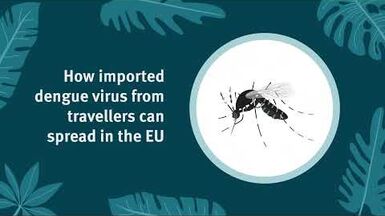ECDC Summer School 2018
The ECDC Summer School 2018 was built based on the experience of the ECDC train-the-trainers’ induction workshop for new EPIET and EUPHEM supervisors in July 2011 and previous 2012 to 2017 editions. The goal of the Summer School was to strengthen the mentoring and technical skills of both ECDC experts and experts within ECDC networks, such as supervisors of the Fellowship programme, by providing an opportunity for networking and scientific exchange.
The specific objectives of the Summer School 2018 were:
- to address expressed training needs among EPIET/EUPHEM supervisors
- to bring supervisors together to share and exchange experiences and views on supervision, coaching and creating collaborations between microbiologists and epidemiologists
- to bring ECDC core activities and fellowship network closer, by increasing the ability for supervisors to identify projects that link to ECDC’s core and priority tasks, and facilitating opportunities for Member State and ECDC experts to be aware of and involved in fellowship projects
The parallel workshops planned were:
Induction of new and future supervisors track:
- 29 May - Supervising a fellow: roles, responsibilities, expectations
- 30 May - The Fellowships are competency-based programmes
- 31 May - Scientific review I: The argument matrix - outline, results and methods
- 1 June - Scientific review II: Discussion, Recommendations, Introduction
Technical workshops
- 29 May – Ethics of scientific communication: authorship, Get your scientific paper published
- 29 May – Methods in food and waterborne diseases
- 30 May – Organization of Simulation Exercises
- 30 May – Public health economics
- 31 May – 1 June – Phylogeny
- 31 May – R statistical programming and Geographical Information Systems (GIS)
- 1 June – Anthropology qualitative methods applied to communicable diseases
The target audiences for the 2018 edition were supervisors of EPIET and EUPHEM: main supervisors, co-supervisors and also those that support fellows in specific projects (15 seats), EU Member State professionals working in prevention and control of communicable diseases (15 seats) and ECDC experts (15 seats, or more depending on capacity of the class-room), Young Gasteiners (3 seats).
Participants could choose to attend the train-train the trainer track, specially designed for supervisors, or parallel technical workshops. At the end of each day, there was a scientific seminar in topics of interest for all the different target audiences. New and future supervisors followed a pre-designed track aimed at their induction to the fellowship programmes. All other participants chose one workshop per day from the mosaic of available workshops.
Selection of participants from EU Member States (EPIET/EUPHEM supervisors and other senior experts) was done through official invitation letters to the National Focal Points for Public Health Training, who were invited to propose the candidates. The EPIET/EUPHEM Training Site Forum and the Coordinating Competent Bodies were informed.




